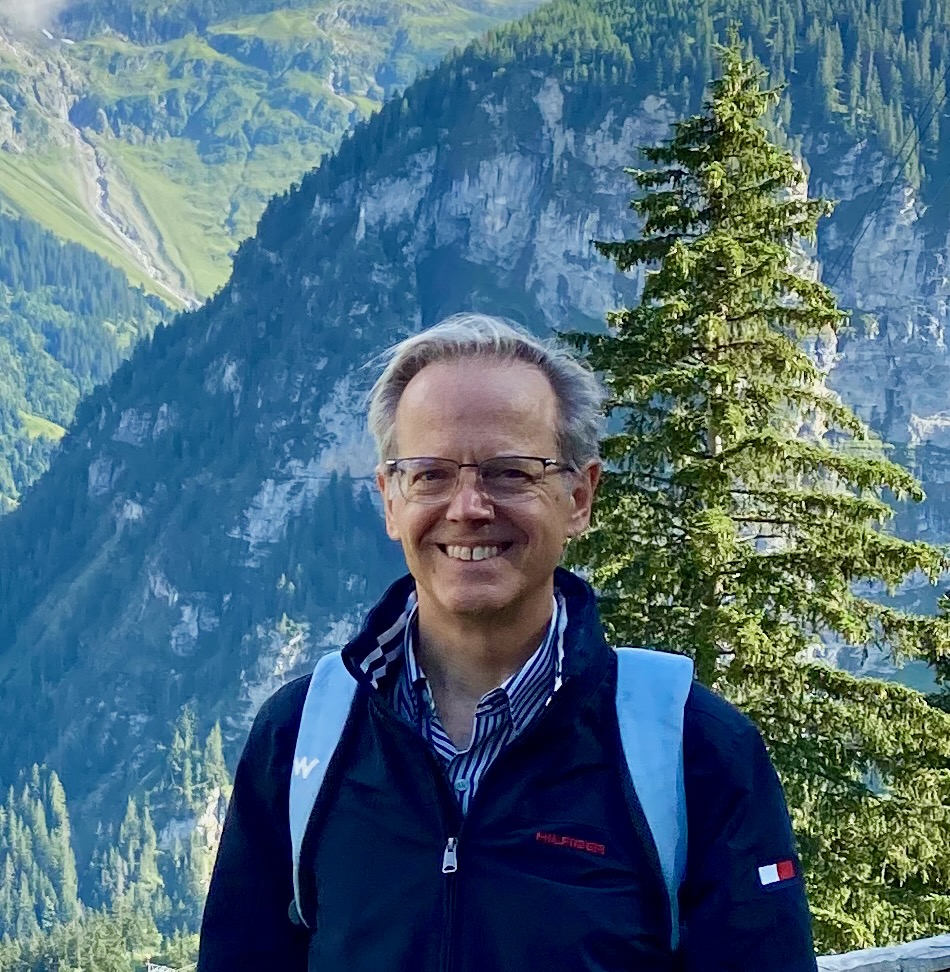Bob Kowalewski

Position
Contact
Credentials
BSc (U Rochester), PhD (Cornell)
Area of expertise
Experimental particle physics
I conduct research in experimental particle physics. I am currently involved with two principle research efforts:
- Studies of weak interactions and CP violation (the breakdown of the symmetry between matter and anti-matter) with the BELLE-II detector at the KEK laboratory in Japan
- Searches for new phenomena at the high energy frontier with the ATLAS detector at the European Centre for Particle Physics (CERN)
I welcome new students on Belle II
Belle II is an experiment in Japan that has sensitivity to new physics in the decays of heavy quarks and leptons. The Belle II detector and SuperKEKB electron-positron collider began collecting physics data in 2019 and have collected a sample nearly as large as the previous generation of experiments. The ultimate dataset will be ~50 times bigger and will allow sensitive precision tests that complement the high energy frontier experiments in our search for physics beyond the standard model. My research in Belle II centres on semileptonic decays of B mesons, including the determination of the coupling strengths (|Vub| and |Vcb|) between the b quark and the u and c quarks (see this review article) and searches for non-standard-model phenomena such as lepton flavour universality violation. Belle II builds on the results of the Belle and BaBar experiments, which were cited in the 2008 Nobel Prize in Physics for confirming the predictions of Kobayashi and Maskawa about the violation of CP symmetry (which is a necessary ingredient in understanding the matter-antimatter asymmetry in the universe).
ATLAS collected the first physics data in 2009, established the existence of a Higgs boson in 2012 and is exploring new territory with higher energy and higher intensity beams from the LHC. My research group on ATLAS is focused on data analysis and on software development and operations for the High Level Trigger and the reconstruction of missing transverse momentum (MET). The HLT is a large parallel computing facility that makes the final decision on whether or not to write each collected event to permanent storage. Continued increases in LHC luminosity require corresponding improvements to the HLT in order to preserve sensitivity to important physics signatures in the presence of higher backgrounds. My group has responsibility for HLT signatures based on MET which are essential for searches for new, non-interacting particles (e.g. Dark Matter candidates). We also work to improve the reconstruction of MET for offline data analysis. Members of my group have worked on studies of the Higgs Boson in the gamma-gamma decay channel, on searches for dark matter candidates using events with jets or vector bosons recoiling against MET and on measuring top-quark production cross-sections in the WbWb final state.
Research interests
- Quark flavor physics
- Electroweak physics
- Dark matter particle searches
- Trigger development
- Machine learning
- ATLAS
- Belle II
- BaBar
For a full list of my publications, see INSPIRE.
Current Graduate Students
- Charlie Chen (PhD) - ATLAS
- Evan Carlson (PhD) - ATLAS (co-supervised)
- Michael Gennari (PhD) - Nuclear theory (co-supervised)
- Sahar Gholipourverki (MSc) - Belle II
Graduated Students (UVic)
- Danika MacDonell (PhD, ATLAS) - Impact PDF at MIT Climate and Sustainability Consortium
- Zhelun Li (MSc, ATLAS); PhD student, McGill University
- Ewan Hill (PhD, ATLAS; co-supervised) - Postdoctoral research at UBC
- Graeme Niedermayer (MSc, ATLAS)
- Justin Chiu (MSc, ATLAS) - Data scientist, Deep Mind
- James Pearce (MSc and PhD, ATLAS) - Data scientist, Amazon 9
- Xander Baker (MSc, ATLAS)
- Ryan Taylor (MSc, ATLAS) - IT professional at UVic
- Ryan Bayes (MSc and PhD, TWIST; co-supervised) - Postdoctoral researcher, Queen's University
- Kenji Hamano (PhD, BABAR) - Postdoctoral researcher, Univ. of Victoria
- Dominique Fortin (PhD, BABAR) - Clinical medical physicist, BCCA
- Paul Jackson (MSc and PhD, BABAR) - Professor, Univ. of Adelaide
Current Postdoctoral Researchers
- Kenji Hamano (ATLAS)
Former Postdoctoral Researchers
- Thomas Lueck (BABAR) - research scientist, Ludwig Maximilian University, Munich
- Florian Bernlochner - Professor, University of Bonn
- Vikas Bansal - data scientist, Microsoft
- Swagato Banerjee - Associate Professor, University of Louisville
- Ahmed Hossain - Associate professor, St. Francis Xavier University
- Bipul Bhuyan - Professor, IIT-Guwahati
- Asoka DeSilva - software engineer, TRIUMF
In addition to the inherently international nature of experimental research in particle physics, I taught a topical course at the African Institute for Mathematical Sciences (AIMS-SA) in South Africa in 2014. The students were very enthusiastic and talented and it was a great experience - one I hope to repeat as time allows. Note that postdocs can apply to be tutors at AIMS and are encouraged to do so.
